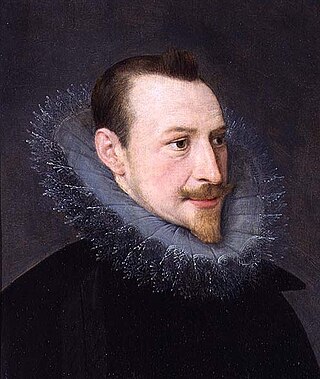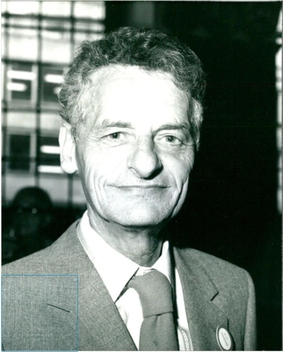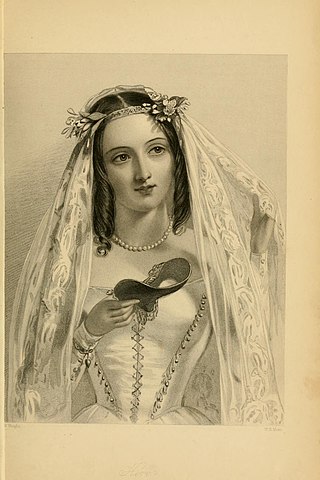Related Research Articles

Edmund Spenser was an English poet best known for The Faerie Queene, an epic poem and fantastical allegory celebrating the Tudor dynasty and Elizabeth I. He is recognized as one of the premier craftsmen of nascent Modern English verse, and he is considered one of the great poets in the English language.

The Faerie Queene is an English epic poem by Edmund Spenser. Books I–III were first published in 1590, then republished in 1596 together with books IV–VI. The Faerie Queene is notable for its form: at over 36,000 lines and over 4,000 stanzas, it is one of the longest poems in the English language; it is also the work in which Spenser invented the verse form known as the Spenserian stanza. On a literal level, the poem follows several knights as a means to examine different virtues, and though the text is primarily an allegorical work, it can be read on several levels of allegory, including as praise of Queen Elizabeth I. In Spenser's "Letter of the Authors", he states that the entire epic poem is "cloudily enwrapped in Allegorical devices", and that the aim of publishing The Faerie Queene was to "fashion a gentleman or noble person in virtuous and gentle discipline".
Richard Barnfield was an English poet. His relationship with William Shakespeare has long made him interesting to scholars. It has been suggested that he was the "rival poet" mentioned in Shakespeare's sonnets.
This article lists notable literary events and publications in 1599.
This article contains information about the literary events and publications of 1596.
Estrildis was the beloved mistress of King Locrinus of the Britons and the mother of his daughter Habren, according to the 12th-century chronicler Geoffrey of Monmouth.
David Lee Miller is a scholar of English Renaissance Literature. He is Distinguished Professor of English and Comparative Literature at the University of South Carolina in Columbia. His works include The Poem's Two Bodies: The Poetics of the 1590 Faerie Queen, ; Dreams of the Burning Child: Sacrificial Sons and the Father's Witness ; three edited books; and about two dozen refereed articles that have appeared in scholarly journals such as Modern Language Quarterly, English Literary History, and Publications of the Modern Language Association. He is one of four general editors of The Collected Works of Edmund Spenser, a new scholarly edition under contract to Oxford University Press.

William Ponsonby was a prominent London publisher of the Elizabethan era. Active in the 1577–1603 period, Ponsonby published the works of Edmund Spenser, Sir Philip Sidney, and other members of the Sidney circle; he has been called "the leading literary publisher of Elizabethan times."

In the Middle Ages, a palmer was a Christian pilgrim, normally from Western Europe, who had visited the holy places in Palestine and who, as a token of his visits to the Holy Land, brought back a palm leaf or a palm leaf folded into a cross. Palmers were often highly regarded as well-natured holy men because of their devotion to Christ along the pilgrimage. The word is frequently used as synonymous with "pilgrim".

Colin Clouts Come Home Againe is a pastoral poem by the English poet Edmund Spenser and published in 1595. It has been the focus of little critical attention in comparison with the poet's other works such as The Faerie Queene, yet it has been called the "greatest pastoral eclogue in the English language". In a tradition going back to Petrarch, the pastoral eclogue contains a dialogue between shepherds with a narrative or song as an inset, and which also can conceal allegories of a political or ecclesiastical nature.
"A Fig for Fortune" is a 1596 long allegorical poem by the English Catholic writer Anthony Copley written as a parodying response to Edmund Spenser's The Faerie Queene. It intended to reject both Protestant portrayals of English Catholics as inherently disloyal to Queen Elizabeth, as well as hard-line Jesuit calls for Catholics to become martyrs by resisting the Protestant Queen.
Bentivoglio and Urania is a prose historical romance and religious allegory written by Nathaniel Ingelo, and published from 1660 by Richard Marriot. It is identified as a Puritan work of fiction. Regarded as an unsuccessful imitation of the Argenis of John Barclay, from four decades earlier, it has also been thought a possible source of inspiration for the Pilgrim's Progress (1678) of John Bunyan.
The House of Pride is a notable setting in Edmund Spenser's epic poem The Faerie Queene. The actions of cantos IV and V in Book I take place there, and readers have associated the structure with several allegories pertinent to the poem.
The Political and Ecclesiastical Allegory of the First Book of the Faerie Queene is a book written by Frederick Morgan Padelford to explain the allegories within the poem The Faerie Queene by Edmund Spenser. The book was first published in 1911 in Boston by Ginn and Company as part of a series of University of Washington publications. The book has been republished since and is widely cited in papers and books related to the study of Spenser and his works.

Karl Watts Gransden was a British poet and an editor, translator, scholar, and teacher of Latin and English literature. He spent his career at the British Museum and the University of Warwick.
Rose Mary Freeman was a British scholar of English literature, a reader at Birkbeck College, and a specialist in Edmund Spenser. She won the British Academy's Rose Mary Crawshay Prize in 1951.
Anthea Hume is a British scholar of English literature, specialising in theological writings. She was a winner of the British Academy's Rose Mary Crawshay Prize in 1985.
Thomas Erat Harrison (1858–1917) was an English artist who made sculptures, medals, paintings, and stained glass.

Hero is a fictional character in William Shakespeare's play Much Ado About Nothing. She is the daughter of Leonato, a governor in Messina, and cousin to Beatrice. In the play, Hero falls in love with Claudio, who, under the influence of Don John, wrongfully accuses her of adultery; this leads her to fake her death. Hero is ultimately proven innocent, and reconciles with Claudio at the play's conclusion.
References
- Hadfield, Andrew (2001). The Cambridge Companion to Spenser. Cambridge University Press. pp. 212. ISBN 0-521-64570-0.
- Edmund Spenser. "The Faerie Queen". The Norton Anthology of English Literature. Volume B.
- "The Faerie Queene". SparkNotes
- "Definition of Orgoglio". 2 June 2024. Wiktionary